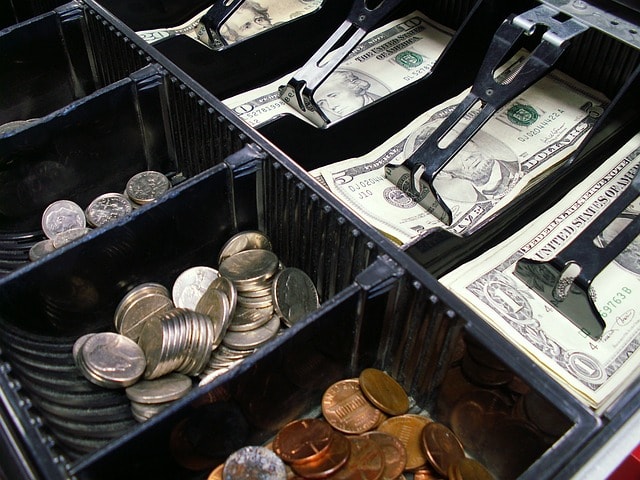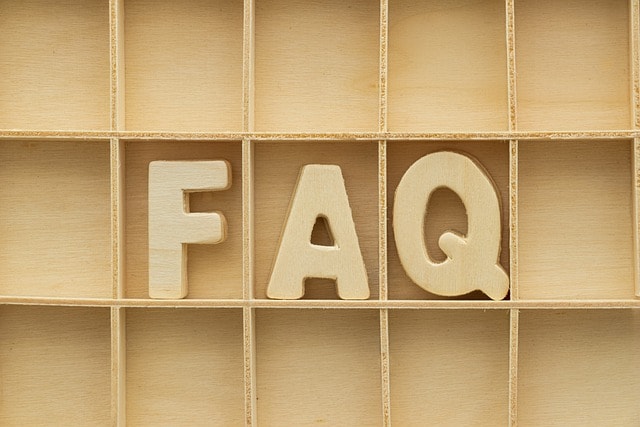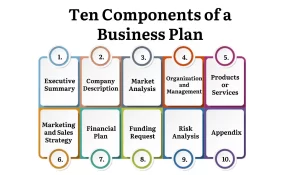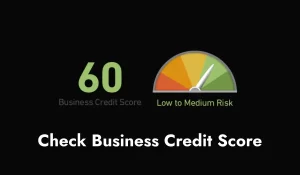When you run a small business, getting fast funding can be tricky. That’s where a Merchant Cash Advance (MCA) comes in. It’s a quick way to get money, but you need to know how much it will really cost you. That’s why using an MCA calculator is important. Let’s dive into what an MCA is, how the calculator works, and why it helps businesses make smart money decisions.
What is a merchant funding?
Merchant financing allows advances in credit card sales. Merchant funds offer a flexible alternative to traditional financial loans in which you receive an advance for predicted credit card sales.
What is a merchant finance?
Merchant financing are specialized types of small business loans that are offered by a payment service provider. Obviously they’re expensive but. Jan 15 2020 12:59.
What is the meaning of merchant loan?
Tell me the significance of merchant loans? Merchant loans are special loans to businesses that provide you with security payment for debit card purchases or credit card purchases.
What is a merchant service loan?
Merchants cash advances offer alternative business financing and are not typical small-business lending solutions. A MCA provides a company with an upfront amount that can be paid back by credit and debit card purchases. Nedy tips. Sept 10 2020.
Why is an MCA not a loan?
The MCAs aren’t actually loaned, but rather an advance purchase of future sales of credit cards to businesses with discounted prices. [3] [4] Loans based on future liabilities are borrowing money which has to be returned in interest for a period of time. April 23rd, 2024
How does MCA work?
Merchant Cash Advances differ from traditional bank loan where lenders are refunded incrementally at fixed periods for an agreed-upon period. In addition, MCAs providers can pay back their fees by paying part of their credit card sales. Some days it may occur almost every day. December 11, 2019.
Are merchant cash advances legit?
Merchants cash advances are illegal as the money is never considered a loan. Instead, it involves acquiring or selling future income. A firm offering this funding can also avoid the regulatory requirements traditionally imposed upon banks because the advance never lasts longer than one year.
What is the standard cash advance rate?
Please review fees if necessary. Cash advance fees are often charged on the card for which the cardholder has a cash advance and can range in price from 3% to 3%. The amount of cash you’ll receive with your 5% deposit is $1.50.
What is a Merchant Cash Advance (MCA)?
A Merchant Cash Advance (MCA) isn’t a regular loan. It’s a type of funding where you get a lump sum of money upfront and then pay it back by giving a part of your future sales.
This is often taken from your future credit card sales or debit card sales. Businesses usually use MCA funding when they need cash quickly but don’t want to deal with long loan processes.

How Does a Merchant Cash Advance Work?
When you get an MCA, you agree to give a portion of your daily or weekly sales until the advance and fees are fully paid back. The payment amount changes depending on how much you sell each day. If sales are slow, you pay less, and if sales are strong, you pay more. This flexible payment structure makes it popular with businesses that experience fluctuating cash flow.
What is an MCA Calculator?
An MCA calculator is a tool that helps you figure out how much an MCA will cost. It shows you how much you’ll end up paying back over time, including any fees and rates. This is important because it lets you compare the total cost with other funding options. Plus, it helps you see if your daily sales will be enough to cover the payments.
Why Should You Use an MCA Calculator?
Using an MCA calculator is like using a map before going on a road trip. You wouldn’t want to get lost, right? The calculator helps you understand exactly how much money you’ll pay back and how fast. Here’s why you should use it:
- Clear Cost Breakdown: The MCA calculator breaks down the total cost, so you know what to expect.
- Helps Plan Payments: It tells you how much you’ll need to pay back daily or weekly.
- Prevents Surprises: Knowing the exact cost before you take the advance helps avoid any surprises.

How Does an MCA Calculator Work?
An MCA calculator works by using a few simple numbers. You input things like:
- Advance Amount: The total amount of money you want.
- Factor Rate: This is a fee you pay on top of the advance. It’s usually between 1.1 and 1.5, meaning if you borrow $10,000 at a factor rate of 1.2, you’d pay back $12,000.
- Holdback Percentage: This is the part of your sales that will be taken each day to pay back the advance.
Once you put these numbers into the calculator, it shows you the total cost per bank account, how long it will take to pay off the advance, and your daily or weekly payments.
Example of Using an MCA Calculator
Let’s say you want to borrow $10,000 business credit. You have a factor rate of 1.3 and a holdback percentage of 10%. Using an MCA calculator, you can quickly find out that you’ll pay back $13,000 in total, and if your daily sales are $1,000, you’ll pay $100 per day (10% of $1,000).

Understanding Merchant Cash Advance Rates
One of the most important things to know about an MCA is the merchant cash advance rates. These rates are not like the interest rates you see with traditional loans.
Instead, they are calculated using a factor rate. Factor rates usually range from 1.1 to 1.5. The higher the rate, the more expensive the merchant cash advance loan becomes.
For example, if you borrow $20,000 at a factor rate of 1.4, you’ll pay back $28,000. That’s a big difference compared to the original borrowed amount, so knowing your rate is key to making a smart choice.
Merchant Cash Advance Fees to Watch Out For
Besides the factor rate, there may be other merchant cash advance fees to consider, such as:
- Origination Fees: Some lenders charge a fee just to set up the MCA. This is usually a percentage of the advance.
- Late Payment Fees: If you fall behind on payments, you might have to pay a penalty fee.
- Early Payment Fees: Believe it or not, some MCAs charge you for paying off the advance early.
Before signing any MCA agreement, it’s important to check if there are any hidden fees and include them in your MCA calculator results.
Why MCA Calculators Are Important for Merchant Funding
When it comes to merchant funding and business credit cards, MCA calculators make it easier to plan. For small business owners, every dollar counts.
Using an MCA calculator allows you to see exactly how much you’ll owe in the end, so you can make sure the deal works for your business. Without this tool, you might find yourself facing unexpected costs that hurt your cash flow.

How Merchant Processing Loans Relate to MCAs
Sometimes, people get confused between merchant processing loans and MCAs. While they both deal with credit card sales, a merchant processing loan usually involves all credit card transactions paying a set monthly amount, while an MCA takes a percentage of daily sales. The flexibility of an MCA makes it a better option for businesses with inconsistent sales, and using an MCA calculator helps you see which one is better for you.
When Should You Consider a Merchant Cash Advance?
MCAs are helpful in several situations, such as when:
- You need cash quickly to cover business expenses.
- You don’t qualify for a traditional loan due to credit issues.
- Your sales are inconsistent, and you prefer flexible payment options.
However, MCAs can be expensive, especially if the factor rate is high, so it’s essential to use an MCA calculator to see the total cost.
How to Find the Best MCA Deals
If you decide to move forward with an MCA, you’ll want to shop around for the best deals. Here are a few tips:
- Compare Factor Rates: The lower the factor rate, the better. Use an MCA calculator to compare rates from different providers.
- Check for Hidden Fees: Some providers charge fees that aren’t obvious upfront. Be sure to ask about any extra costs.
- Negotiate: It’s possible to negotiate the terms of your MCA, especially if you have a strong sales history.
An MCA calculator is an essential tool for business owners considering a Merchant Cash Advance. It gives you a clear understanding of how much the advance will cost and helps you plan your payments.
MCAs are a great option for businesses that need fast funding but come with high costs if you don’t understand the terms. Always use an MCA calculator before agreeing to any deal, and make sure it fits your business’s needs.
How to Use an MCA Calculator Correctly
Using an MCA calculator is simple, but to get accurate results, you must input the right data. Let’s walk through the steps on how to use an MCA calculator properly and what each input means for your business.
Step 1: Enter the Advance Amount
The first thing you need to know is how much money you need. This is called the merchant cash advance online amount amount.
It’s the lump sum you’ll receive when you take the Merchant Cash Advance. Make sure you know exactly how much you need because this number will affect your repayment amounts.
Step 2: Add the Factor Rate
The factor rate is one of the most important parts of an MCA. Unlike traditional loans that use interest rates, MCAs use factor rates, which are expressed as a decimal, such as 1.1, 1.2, or higher. A lower factor rate means you’ll pay less in the long run.
Make sure to ask your MCA provider for the exact factor rate they’re offering, and input that number into the MCA calculator. The calculator will then use it to figure out how much you owe in total.
For example, if you borrow $15,000 at a factor rate of 1.3, you’ll need to pay back $19,500 ($15,000 x 1.3). As you can see, the factor rate adds a significant cost to your advance.
Step 3: Input the Holdback Percentage
The holdback percentage is the part of your daily sales that goes toward repaying your MCA. This percentage usually ranges from 5% to 20%, depending on your business’s annual revenue and agreement with the MCA provider.
If your holdback percentage is 10%, and your daily sales are $2,000, you’ll be paying $200 that day toward your MCA.
Enter this percentage into the MCA calculator to see how quickly you’ll be able to pay off the advance. The higher annual percentage rate your daily sales, the faster you’ll repay the MCA.
Step 4: Review the Results
Once you’ve entered all the necessary information into the MCA calculator, you’ll be able to see the following:
- Total Repayment Amount: This is the full amount you’ll pay back, including the advance and factor rate. Make sure you’re comfortable with this number before agreeing to the MCA.
- Repayment Period: This tells you how long it will take to pay off the advance, based on your daily sales and the holdback percentage.
- Daily or Weekly Payments: You’ll get an estimate of how much you’ll need to pay each day or week, which is important for managing your cash flow.
MCA Terms for Better Financial Decisions
When dealing with MCAs, it’s important to understand the terms associated with them. This knowledge helps you avoid costly mistakes and make better decisions for your small business loans too. Let’s go over some of the most common terms you’ll encounter.
Advance Amount
This is the sum of money you receive from the MCA provider. It’s usually based on your monthly credit or debit card payments and sales. If your business has strong sales, you might qualify for a larger advance. However, taking more than you need can lead to higher costs, so only borrow what’s necessary.
Factor Rate
The factor rate, as mentioned earlier, is the cost of the MCA. It’s different from the interest rate you see with traditional business loans, because it doesn’t change over time. The total repayment is calculated upfront, so you know exactly how much you’ll be paying back.
Always ask for the factor rate before accepting an MCA offer, and use an MCA calculator to determine if the rate is too high for your business.
Holdback Percentage
This is the percentage of your daily sales that goes toward paying off the advance. It’s important to choose a percentage that won’t hurt your business.
If the holdback percentage is too high, you could struggle to cover other business expenses, like rent, payroll, or inventory. Lower percentages might make repayment of bad credit will take longer, but they can help you manage your day-to-day cash flow more easily.
Repayment Timeframe
The time it takes to repay an MCA depends on your daily sales and the holdback percentage. If you have slow sales, it might take longer to repay the advance. On the other hand, strong sales can help you pay it off faster. Use the MCA calculator to estimate how long it will take to repay the full amount based on your current sales.
Pros and Cons of Merchant Cash Advances
While MCAs are a popular option for businesses needing fast cash, they come with both benefits and downsides. Let’s look at the pros and cons of MCAs so you can decide if this type of funding is right for a business bank account and you.
Pros of MCAs
- Fast Access to Cash: MCAs are known for their speed. You can often get the money within a few days, making it a great option if you need quick funding to cover unexpected expenses.
- Flexible Payments: Since payments are based on a percentage of your sales, they adjust with your business’s revenue. This is helpful for businesses with fluctuating sales.
- No Fixed Monthly Payments: Unlike traditional loans, there’s no set monthly payment with an MCA. This can provide relief during slow months.
- No Collateral Required: MCAs are unsecured, meaning you don’t need to put up assets like your house or equipment to qualify.
Cons of MCAs
- High Costs: One of the biggest downsides to MCAs is the cost. Factor rates can be high, and when you calculate the total amount you’ll pay back, it’s often much more expensive than a traditional loan.
- Frequent Payments: The daily or weekly payment structure can put a strain on your cash flow, especially during slow periods. If you have a few bad weeks, it might be hard to keep up with the payments.
- No Early Payoff Benefit: Even if your sales are strong and you pay off the advance early, you still have to pay the full amount as agreed. There’s no discount for early repayment.
- Limited Regulation: MCAs aren’t regulated like traditional loans, which means you need to be extra careful when choosing a provider. Some MCA providers may have hidden fees or unclear terms.

Alternatives to Merchant Cash Advances
If you’re unsure about taking an MCA due to the high costs or other concerns, there are other funding options you can consider. Here are some common alternatives to MCAs.
Traditional Bank Loans
If you have a good credit score and don’t need the money right away, a traditional loan from a bank or credit union might be a better option.
Bank loans with credit scores usually have lower interest rates and longer repayment terms than MCAs. However, they also take longer to get approved, and the application process can be more complicated.
Business Lines of Credit
A business line of credit gives you access to a set amount of money that you can borrow from as needed. You only pay interest on the amount working capital loans you use, making it more flexible than a loan.
Lines of credit can be a great option for businesses that need ongoing access to capital, but they usually require good credit and a solid business history.
Invoice Financing
If your business deals with clients who take a long time to pay invoices, you might want to consider invoice financing. This option allows you to a business loan and borrow money based on your outstanding invoices. The lender gives you a portion of the invoice amount upfront, and then you repay them when your customer pays the invoice.

Frequently Asked Questions
- What is a factor rate in an MCA? A factor rate is a fee applied to the amount you borrow. It’s different from an interest rate and can range from 1.1 to 1.5, meaning you’ll pay back more than the initial amount borrowed.
- Can I pay off my MCA early? Some providers allow early payment, but be careful of early payment fees that may be included in your contract.
- How does an MCA calculator help me? An MCA calculator shows you the total cost of the advance, your payment schedule, and the fees involved, helping you make informed financial decisions.
- Are MCAs better than traditional loans? It depends. MCAs offer fast cash with flexible payments, but they can be more expensive than traditional loans.
- What are the risks of taking a Merchant Cash Advance? The biggest risk is the cost. High factor rates and fees can make an MCA expensive, so it’s crucial to use an MCA calculator to understand the full cost before accepting one.






